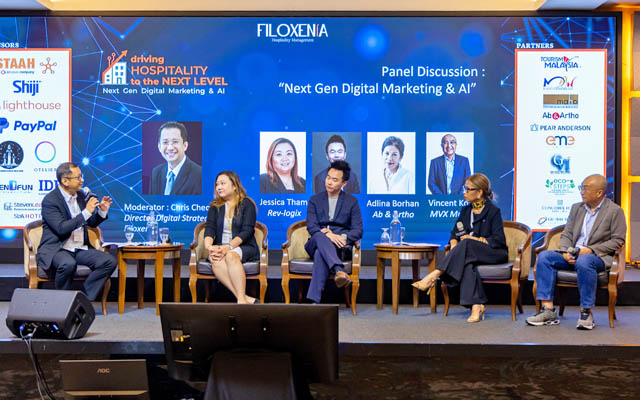Artificial intelligence (AI), direct bookings, and secure payment systems are reshaping digital marketing, as hotels and travel brands adapt to a cookie-less environment and rising demand for personalisation.
At the Next Gen Digital Marketing & AI panel discussion, speakers highlighted how hotels are gaining greater control over pricing with AI-driven insights, while brand reputation, secure transactions and gradual adoption of new technology are becoming key growth drivers in the Web 3.0 era.

Jessica Tham, consultant at Rev Logix, said hotels are steadily moving away from heavy reliance on OTAs, which often charge high commissions, and are focusing on strengthening direct bookings through their own channels.
She explained that AI is reshaping dynamic pricing by enabling hyper-personalised offers based on guest search patterns, preferences and booking history. With AI-powered data analysis, hotels gain more control over pricing, reduce dependence on third parties, and create more guest-centric experiences.
According to Tham, the shift has accelerated as hotels realise the value of owning customer data and using technology to optimise both pricing and engagement. “Hotels that invest in their own booking platforms and data strategies are no longer just competing with OTAs on price – they are competing on personalisation and trust,” she said. She added that this approach also helps hotels respond quickly to market fluctuations, a key advantage in volatile travel conditions.
Vincent Kok, co-founder of MVX Multiverse, noted that AI adoption should be a step-by-step process rather than a “big bang” overhaul.
“AI is not just about reducing costs – it can also open up new revenue opportunities when applied creatively,” he said, adding that chatbots, which now offer multilingual support and more natural interactions, are a realistic entry point for independent hotels looking to enhance customer service while managing costs.
Lewis Lee, head of business development APAC at PayPal, highlighted the role of secure payments in influencing customer willingness to book. He said PayPal’s focus on fraud prevention and data privacy translates into higher conversion rates, with more than 70 per cent of users completing transactions when the service is offered.
Adlina Borhan, CEO of AB&Artho, stated public relations has become a strategic lever for building reputation and trust with guests, which in turn drives business.
“Reputation builds trust, and trust brings revenue. If your brand is not recognised for its credibility, even the best pricing strategies will fail to convert,” she said. Adlina explained that PR, marketing and technology must work together to support the book-direct journey: PR creates awareness and trust, marketing drives engagement, and technology secures the transaction.
The session was moderated by Chris Cheong, director digital strategies, Filoxenia. The half-day forum entitled Driving hospitality to the next level: Next Gen Digital Marketing & AI was organised by Filoxenia Hospitality Management at Concorde Hotel Kuala Lumpur recently.











